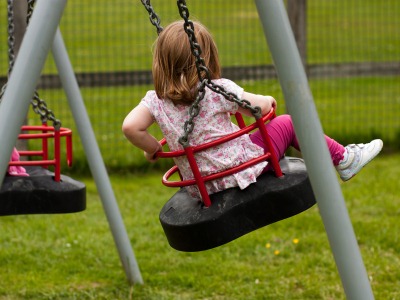
Adoptions are 10 times more likely to break down during teenage years than when children are under the age of four, a government-funded study has found.
The research by the University of Bristol examined the 37,335 children adopted between April 2000 and March 2011.
It found that 565 had been ‘disrupted’ after the adoption order was made and that teenagers were 10 times more likely to experience an adoption breakdown than young children.
Nearly two-thirds of break downs took place during adopted children’s teenage years.
The child’s age was found to be the key factor in break downs with the child’s gender and ethnicity made no difference to the likelihood of adoption disruption.
Adoption UK chief executive Hugh Thornbery said the figures were reflective of how adoption support services were focused on the first years of a child’s adoption and the lack of support during adolescence.
“Adoption is a journey and it is crucial that families receive the support they need if there are challenges along the way,” he said.
“Many adopted children have experienced abuse and neglect and it is vital that support is available for their entire childhood and beyond, not just in the early years of an adoption placement.”


 A trauma-informed approach to social work: practice tips
A trauma-informed approach to social work: practice tips  Problem gambling: how to recognise the warning signs
Problem gambling: how to recognise the warning signs 




 Find out how to develop your emotional resilience with our free downloadable guide
Find out how to develop your emotional resilience with our free downloadable guide  Develop your social work career with Community Care’s Careers and Training Guide
Develop your social work career with Community Care’s Careers and Training Guide  ‘Dear Sajid Javid: please end the inappropriate detention of autistic people and those with learning disabilities’
‘Dear Sajid Javid: please end the inappropriate detention of autistic people and those with learning disabilities’ Ofsted calls for power to scrutinise children’s home groups
Ofsted calls for power to scrutinise children’s home groups Seven in eight commissioners paying below ‘minimum rate for home care’
Seven in eight commissioners paying below ‘minimum rate for home care’
 Facebook
Facebook X
X LinkedIn
LinkedIn Instagram
Instagram
The shocker for the researchers has been the level of child to parent violence. Disruptions are low due to the tenacity of adopters living with , loving and supporting our traumatized children , often without the support so desperately needed.
One other angle that needs to be explored is the issue of FASD. It is often in the teenage years that the invisible disability of Foetal Alcohol Spectrum Disorder (FASD) becomes more pronounced. FASD is the leading cause of preventable learning disability in the UK. Prenatal alcohol exposure (even from social drinking) can lead to physical and in particular, neurological impairments in the child and young person. Whilst there can be signs in early childhood more often it is as the child ages that the behaviours may point to issues with the functioning of the brain. These behaviours can present in ways similar to ADHD, ODD, RAD, autism, learning issues, developmental delays, sensory processing issues, sleep disorders, mental health issues etc. Clear information about the prenatal environment of the child as well as the early years will assist with early diagnosis and early intervention which makes a huge difference in the outcomes for that individual and their family. International studies suggest that 70% of children with FASD go through the care system at some point and the support groups we run for hundreds of families are largely made of foster carers and adopters which suggests that the research is correct. Many practitioners have not been trained to recognise FASD and caregivers are not informed of suitable strategies to support their child so perhaps we can also improve adoption outcomes if we give everyone the tools they need to help every child thrive and reach their potential.
I think that one has to better clarify what is meant by adoptions ‘breaking down’ – until there is clear long-term research available into adoptions – and broken down into reasons for the original adoption – then we still remain unclear about just how positive this form of substitute care is.
We need to know how many adoptees sought out their birth parents / other family members and when – and vice versa. Whether that was in a controlled manner or through social media. How many adoptees knew from what age that they were adopted and why. How many had Life Story books available to them.
It sadly remains an area largely clouded in mystery.
There are exceptions. My boys internationally adopted at ages 11 to 14. Struggles yes,adjustments huge,disillusionment galore,but doing well in spite of. We knew when we brought them home that what we do for them we will not see the benefits of until they are men and have hind sight. Our hearts break for their hurts and losses. We communicate openly about those things even when they would prefer to shut those things out. Did we have our moments? You bet we did but we expected them.
So why the difference? Why do we have 5 that are falling into a place of health? My heart breaks for those adoptive parents and the kids whose struggles are so big. I am humble and thankful for our progress even when I cannot always see it or we take a step backwards. I do not take it for granted. I fully understand their struggles
I think the government should work to promote awareness about parental violence and about how communities can help to bring down the violence.